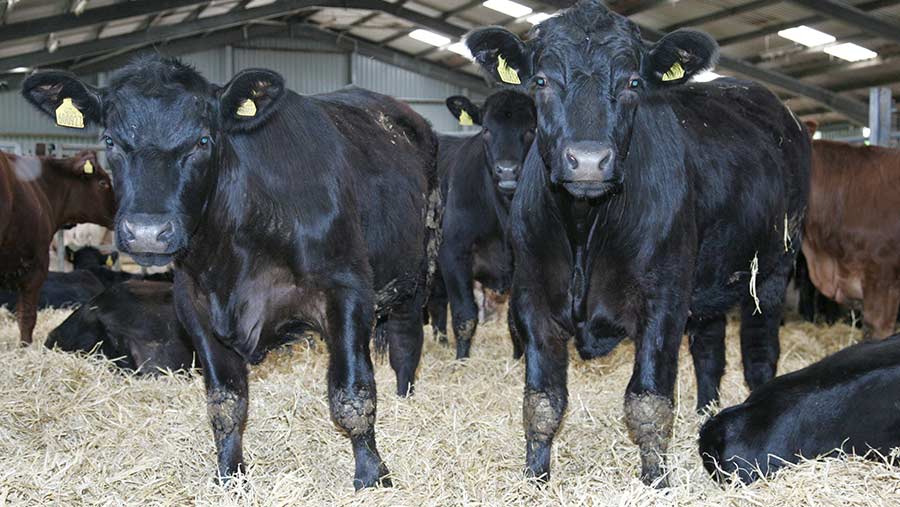Vet viewpoint: Don’t delay routine cattle treatments at housing
 Farmers are being reminded to make sure routine treatments and vaccinations are up to date at housing© Tim Scrivener
Farmers are being reminded to make sure routine treatments and vaccinations are up to date at housing© Tim Scrivener As the cooler nights take hold farmers are being advised not to put off worming cattle to prevent lungworm from taking hold.
In the November issue of Vet Viewpoint vets from Ireland, Scotland and England, also talk about the importance of ensuring other routine treatments and vaccinations are up to date to prevent production losses over the winter at housing.
Craig McAlister
Parklands Veterinary Group, Dungannon, Co Tyrone
The cooler nights have brought the usual smattering of pneumonia cases recently. This can be individual cases in a group, or, as I have seen recently, lungworm (Hoose or Husk) is causing a group problem.
With Hoose we hear the typical loud barking cough of an animal trying to clear its throat of an irritant (lungworm). When the cattle are resting there may be little coughing, but any excitement or exercise, like walking to the feed trough can set them off.
See also: Farmers cut antibiotic use but more work needed
Lungworm opens the lungs up to bacterial invasion and full-blown pneumonia often ends with rapid death.
For this reason, we should not put off worming cattle if they need it for a week or two until they are housed, as this could be disastrous. Cattle with lungworm do not respond well to pneumonia vaccines, so it also reduces the protection gained from these at housing.
Bob Norquay
Northvet Veterinary Group, Kirkwall, Orkney

In the Northern Isles, we had a good summer, and missed the extremes of water shortages seen further south.
The lochs have been very low, but now with the recent storms and rain, they are as brimful as they usually are at this time of year.
The good summer has meant the cattle and sheep problems have been at a minimum. But with the ground getting wet and poached, the farmers here in Orkney are starting to take cattle in for the winter; meaning many of them will not be back out to grass until the end of May.
Housing starts the cycle of winter routine jobs for vets and farmers, such as TB testing, scanning, Johnes and BVD sampling. With cattle being housed quickly, now is the time to order and plan ahead for winter dosing regimes for fluke, worms and pneumonia vaccination.
Paddy Gordon
Shepton Veterinary Group, Shepton Mallet, Somerset

Calf health has been in the farming news recently, with the requirement for Tesco producers to rear their calves in pairs. This follows research showing better growth rates and feed intakes are achieved where there is some competition between calves, as well as improved behavioural development.
As a practice we have seen an increase in uptake of pneumonia vaccines, as well as increased awareness of good calf-rearing practices, such as colostrum management, and increased milk quality and quantity.
Time will tell how these changes affect age at first calving, but we are already noticing reductions in requirements for calf pneumonia treatments.
As we head into autumn and pneumonia risk increases, it is a good time to talk to your vet about calf pneumonia vaccination and good calf management.
Stephen Borsberry
Farm & Equine Veterinary Surgeons, Rowington, Warwickshire

I have always considered the use of vaccines as an insurance policy, however, vaccination is not a panacea for poor management.
Pneumonia vaccines should be used together with improving ventilation and so on.
I was concerned when reading an article that a large sheep farm was ceasing to use enzootic abortion vaccination. My experience of unprotected flocks is that the first year there may be a few abortions, then in the following year(s) abortion “storms” can occur.
Successful treatment of Strep. Uberis mastitis is proving difficult even with extended antibiotic therapy.
The new Red Tractor requirements have certainly concentrated the mind on herd/flock health plans and antibiotic usage.
With conserved forage being scarce it will be a challenging winter.

